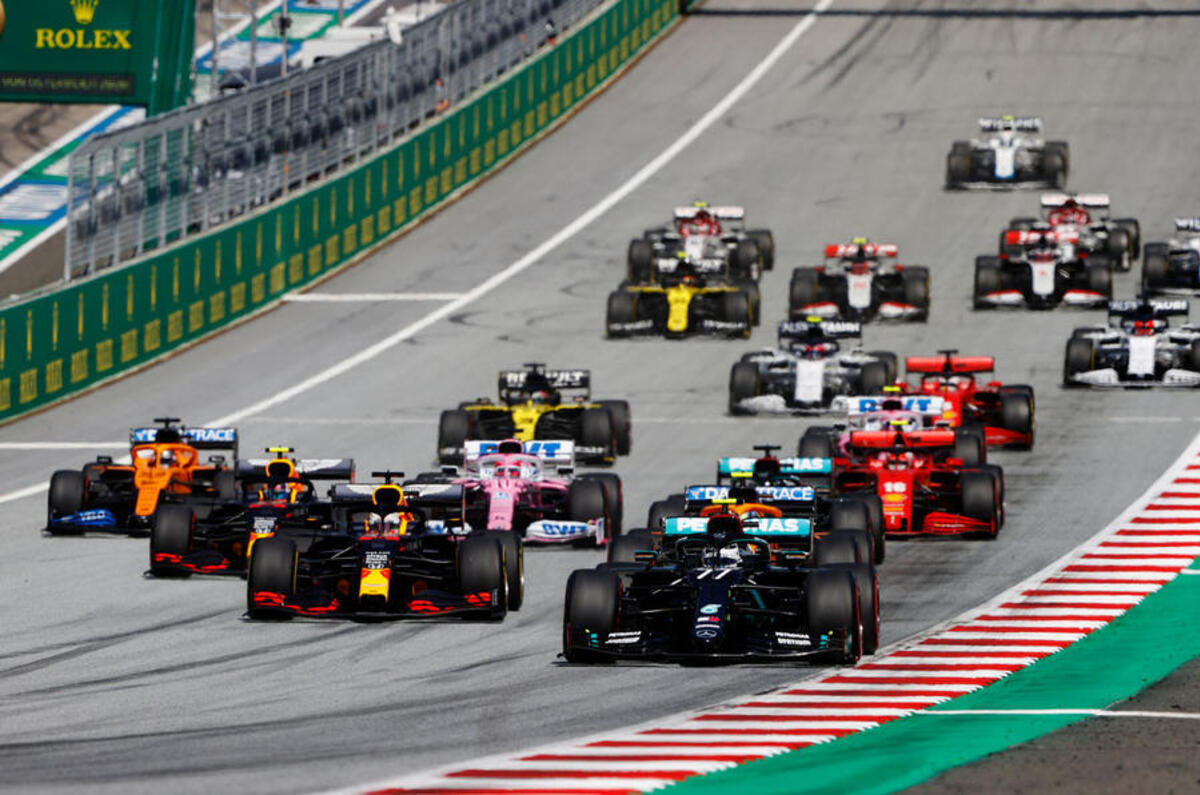Samples of a new sustainable fuel developed by the FIA have been delivered to Formula 1 engine manufacturers for testing, in line with the sport's goal to be carbon-neutral by 2030.
The FIA, as motorsport's global governing body, has agreed a strategy for F1 to become carbon-neutral from 2021 as part of a wider effort to "reduce the environment impact of motorsport and mobility by setting clear goals to accelerate this progress".
To that end, the organisation has commissioned the development of a biofuel claimed to be "100% sustainable" and to conform with F1's stringent regulations.
The first barrels have now been delivered to Ferrari, Honda, Mercedes-AMG and Renault, which supply the V6 hybrid powertrains to F1's 10 teams.
No details have been given on the substance's make-up, but the FIA claims that it's "exclusively refined using biowaste", unlike the high-octane petrol currently used by F1 cars.
It's planned that successful trials of the new fuel will prompt F1 suppliers to develop similar substances, with an ultimate end goal of the series using 100% sustainable fuels by 2026.
As of the start of the next F1 season, all teams must use fuel that is 10% biofuel, plus it will be permitted in other series, including the European Truck Racing Championship.
FIA president Jean Todt said: "[The] FIA takes its responsibility in leading motorsport and mobility into a low-carbon future to reduce the environmental impacts of our activities and contribute to a greener planet.
"I’m glad that our Members Clubs approve our environmental strategy that's part of the Purpose Driven initiative focused on the societal contribution of our two pillars.
"By developing sustainable fuel made from biowaste that can power F1, we're taking a new step forward. With the support of the world’s leading energy companies, we can combine the best technological and environmental performance.”
READ MORE
Formula 1 targets 'net-zero carbon' status by 2030
Formula 1 2021: 23-race calendar includes new Saudi Arabia GP








Join the debate
Add your comment
Nothing wrong with a bit of PR puff, but what about the fleets of lorries, helicopters, private jets, luxury yachts ... that F1 teams and their hangers on use? I would imagine their impact makes F1 cars irrelevant.
I don't understand why the manufacturers would want to continue developing ICE engines for Biofuel or any fuel, when they soon won't be allowed to sell ICE cars on the road?
Biofuels are not sustainable.
Land use, fertilizer and pesticide manufacturing, the process of producing and transporting the fuel all have an environmental cost in the form of carbon emissions, water usage and water pollution.
Of course, when this stuff is burned, it produces as much local pollution as regular gasoline.
If F1 wants to be the pioneer of automotive technology, they shouldn't go down the route of dead end solutions.
Also, they will still cause local pollution so they will be banned from city centers.
Way less than petrol like 60% co2, co -15%, nox - 50% and - 33% and no particulate at all.
Not to mention that you electricty is most gaz and coal in the uk so your kw is loaded with emission... and not come about with renewable that just a' dream as they provided energy when they can not when you need.
As for electricity from the grid making EVs more polluting than ICE cars, this myth has been busted over and over, you can google : Electric car emissions myth 'busted' to find a BBC article on it .
Regards to video i have serious doubt as it is well documented:
Eu studies show that particules emission from an ev is way more than the one from 6dtemp diesel total emission (brake, tyres and engine)
and you need to add the emission from the coal or. gaz powerplant on top of that...
That is only for the car usage then we can look at the water quantity used to procuded the lithium etc
So please stop leaving on a dream world there is nothing perfect and ev is far away from. perfection the push is there to be not dependent from oil country that all
Thanks for the info, I will look into it.
Those studies looked specifically at the grid emissions to calculate the well-to-wheel emissions of EVs.
That study is very doubious, 5.8 grams lost from every tyre per km? I would need new tires every month. Not to mention that EVs can utilise regeneretive braking which eliminates brake dust.
Water is used to make the batteries for an EV, but not for every time that I will "fill it up". Total lifecycle studies have shown that they are better than any other choice in regards to emissions.
Nothing is perfect, but some things are better than others.